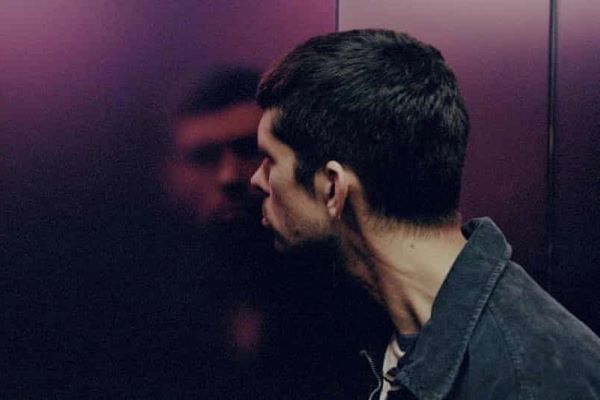Airport security worker Joseph (Ben Whishaw) leads a solitary and repetitive life alternating between a workplace where he feels alienated from the rest of his colleagues, with the exception of Lily (Jasmine Jobson), and eating ready meals in his flat. His relationship with his parents (Ellie Haddington, Ian Gelder), is also strained and distant. However, when Joseph explodes one day at work, he acts out in ways alien to his daily routine, beginning with an impromptu armed robbery in order to help repair Lily’s broken television. This act is only the start of a physical, mental and emotional journey for him that could either be the path to freedom or a more disturbing mental decline.
Whishaw gives a powerful performance as Joseph, giving it his all as he goes from introverted airport security worker to impromptu bank robber in a fully-fledged breakdown (or breakthrough?) that enables him to go to extremes both physically and vocally. Whishaw begins by effectively conveying Joseph’s isolation from his fellow co-workers as well as his breakdown at his parent’s house, then progresses smoothly towards a growing manic confidence when he robs his first shop. This sense of energy extends to Joseph relationship with Lily, as both Whishaw and Jobson both share a natural chemistry that arises from their situation and doesn’t feel tacked-on in order to provide Joseph with a form of love interest.
However, it isn’t just Whishaw that excels, with Haddington and Gelder also providing strong support as Joseph’s parents. Haddington in particular gives an equally compelling performance to Whishaw, with her initial coldness towards Joseph breaking down to reveal an intense love that overcomes any issues she has with his lifestyle as well as her husband’s anger.
Director Karia maintains a pace that mirrors Whishaw’s performance, beginning slowly with long takes that demonstrate the tedium of Joseph’s job and the emptiness of his solitary life, but then escalating the intensity through the use of shaky handheld shots to convey the frantic nature of Joseph’s actions. Karia also makes use of black humour and surrealistic imagery that provides colour to the proceedings, such as Joseph’s disruption of a best man’s wedding speech and the climactic inclusion of Indian dancers in a London street setting.
The one key aspect to what makes this film work though, is the script, which Karia co-wrote with Rupert Jones and Rita Kalnejais. It helps to illustrate Joseph’s breakdown through contrasting the above surrealism with starkly harrowing details in the form of the various manifestations of Joseph’s deteriorating mental state. From an early scene showing Joseph chewing glass until his mouth bleeds to a later scene showing his destruction of a hotel bed, these aspects not only provide Whishaw with ample opportunities to push himself as an actor, but also highlight the darker reality behind Joseph’s actions.
Surge is a visceral rollercoaster of a film that gives Whishaw, one of the UK’s most underrated actors, a chance to truly shine in a role that pushes him to the limit both physically and mentally. Filled with black humour and unforgettable imagery, it’s one that will stay with you days after an initial viewing.
Available On-demand on Amazon Prime
